WANT TO STAY UP-TO-DATE ON WHICH NEW WRITING GUIDES ARE IN THE WORKS? Sign up for our newsletter or add yourself to our mailing list to be notified of new releases. (And dont worrywe never spam or share your personal information!) Please visit us at Writers Helping Writers, where you can find many free tools, handouts, and resources. We also provide a vast thesaurus collection that offers description ideas for Settings, Weather, Symbolism, Colors, Textures, Shapes, Talents and Skills, and Physical Attributes of Characters. Happy writing!  TITLE PAGE EMOTION AMPLIFIERS A Companion to The Emotion Thesaurus: A Writers Guide to Character Expression Angela Ackerman and Becca Puglisi Copyright 2014 by Angela Ackerman and Becca Puglisi Smashwords Edition All rights reserved writershelpingwriters.net No part of this publication may be reproduced or distributed in print or electronic form without prior permission of the authors. Please respect the hard work of the authors and do not participate in or encourage the piracy of copyrighted materials. Book cover design by: McCorkle Creations Book formatting by: CyberWitch Press LLC ABOUT THE AUTHORS Angela Ackerman is a member of The Society of Childrens Book Writers and Illustrators (SCBWI) and writes on the darker side of Middle Grade and Young Adult.
TITLE PAGE EMOTION AMPLIFIERS A Companion to The Emotion Thesaurus: A Writers Guide to Character Expression Angela Ackerman and Becca Puglisi Copyright 2014 by Angela Ackerman and Becca Puglisi Smashwords Edition All rights reserved writershelpingwriters.net No part of this publication may be reproduced or distributed in print or electronic form without prior permission of the authors. Please respect the hard work of the authors and do not participate in or encourage the piracy of copyrighted materials. Book cover design by: McCorkle Creations Book formatting by: CyberWitch Press LLC ABOUT THE AUTHORS Angela Ackerman is a member of The Society of Childrens Book Writers and Illustrators (SCBWI) and writes on the darker side of Middle Grade and Young Adult.
When she isnt coaching writers, creating new writing tools or plotting mayhem, shes carefully deleting her browser history and pretending to live the life of a normal, quiet Canadian. Becca Puglisi is a YA fantasy and historical fiction writer and member of the SCBWI. She resides in the U.S., where she likes to watch movies, drink caffeinated beverages, and eat foods that arent good for her. She lives with her husband and two children. Together they pen bestselling writing guides which are sourced by U.S. universities and are used by novelists, screenwriters, editors, and psychologists around the world.
Angela and Becca are also the creators of the popular Writers Helping Writers site, which specializes in building innovative tools for writers that cannot be found elsewhere. THE WRITERS HELPING WRITERS BOOK COLLECTION 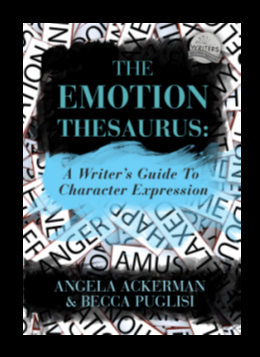 THE EMOTION THESAURUS is a tool for writers who want to convey character emotion effectively. It spotlights seventy-five emotions and the body language cues, thoughts, and visceral responses for each. Also addressed are common emotion-related writing problems and methods to overcome them. This thesaurus encourages writers to show, not tell, emotion and is a brainstorming resource for any fiction project. For more information, reviews, and purchasing options, please visit our website.
THE EMOTION THESAURUS is a tool for writers who want to convey character emotion effectively. It spotlights seventy-five emotions and the body language cues, thoughts, and visceral responses for each. Also addressed are common emotion-related writing problems and methods to overcome them. This thesaurus encourages writers to show, not tell, emotion and is a brainstorming resource for any fiction project. For more information, reviews, and purchasing options, please visit our website.
To see a sample chapter, . 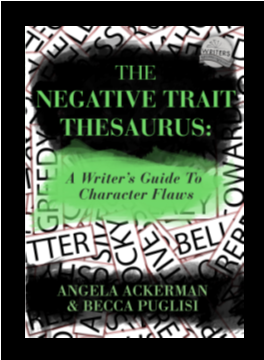 THE NEGATIVE TRAIT THESAURUS is a flaw-centric exploration of your character's arc, motivation, emotional wounds, and basic needs. Its vast collection of flaws will help writers to explore the possible causes, attitudes, behaviors, thoughts, and related emotions behind their characters weaknesses so they can be written effectively and realistically. Downloadable tools for character building are included. For more information, reviews, and purchasing options, please visit our website.
THE NEGATIVE TRAIT THESAURUS is a flaw-centric exploration of your character's arc, motivation, emotional wounds, and basic needs. Its vast collection of flaws will help writers to explore the possible causes, attitudes, behaviors, thoughts, and related emotions behind their characters weaknesses so they can be written effectively and realistically. Downloadable tools for character building are included. For more information, reviews, and purchasing options, please visit our website. 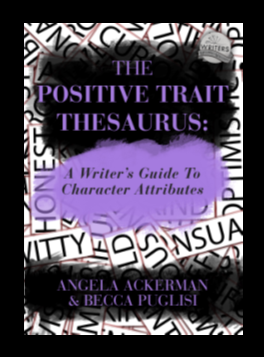 THE POSITIVE TRAIT THESAURUS is brimming with ideas to help authors develop one-of-a-kind, dynamic characters that readers will love.
THE POSITIVE TRAIT THESAURUS is brimming with ideas to help authors develop one-of-a-kind, dynamic characters that readers will love.  THE POSITIVE TRAIT THESAURUS is brimming with ideas to help authors develop one-of-a-kind, dynamic characters that readers will love.
THE POSITIVE TRAIT THESAURUS is brimming with ideas to help authors develop one-of-a-kind, dynamic characters that readers will love.
Through an exploration of morals, basic needs, environment, relationships, and past events, this book helps authors to determine which attributes make sense for their characters, and how those traits might manifest. With entries written in a user-friendly list format, this brainstorming resource is perfect for any character creation project. For more information, reviews, and purchasing options, please visit our website. To see a sample chapter, . TABLE OF CONTENTS
AMPLIFIERS AS EMOTION BOOSTERS
AMPLIFIERS AS EMOTION BOOSTERS As writers, our job is to create a meaningful emotional experience for readers. One of the best ways to do this is to convey the quality and depth of our characters feelings through their thoughts, body language, and visceral reactions.
This is the primary focus of The Emotion Thesaurus: A Writers Guide to Character Expression and is at the root of the show dont tell principle. When readers are pulled in by emotional intensity, they cant help but fall in love with our characters and their stories. But the writers bag of tricks is never full. Theres always another device, another method to help us achieve our goals. Enter Emotion Amplifiers, a collection of fifteen states that naturally galvanize emotion and make a character more volatile. The beauty of emotion is that it can be manipulated by internal and external stimulicircumstances that amplify what a character is feeling.
Hunger or extreme heat can increase strain and deplete the body to the point where goals seem insurmountable. Stress can unbalance the most stable of characters, opening them up to raw emotion, rash decisions and, ultimately, mistakes that send them on a crash course with disaster. Amplifiers also can evoke memory for the reader because of their commonality. At some point, every person has felt a burst of energy that propels him to tackle a task; he has experienced pain that sends a jarring throb through flesh and bone. Universal experiences like these help forge a link between reader and character. Written thoughtfully, the difficulties that arise from an amplifier will trigger a stronger emotional response that reads as authentic and credible.
Compromising your characters physical and mental state also creates tension, planting doubt in the readers mind about the heros ability to succeed. THE EMOTIONTENSION CONNECTION Emotion and tension often go hand in hand. If emotion is low, chances are that story tension is also waning. When emotion is high and its written effectively, tension will most likely be on the rise. Tension is important in a story because it increases reader interest. When the heros outlook is grim, readers worry over his success.
This worry translates into empathy with the character and a desire to keep reading in order to find out what happens. As an example, lets consider The Hunger Games. Tension is high throughout the story because of whats at stake. But Collins doesnt let it stay at that level. Instead, she ramps it up by adding stressors to Katnisss situation. At the start of the games, Collins removes fresh water from the arena, thereby threatening dehydration and adding another life-or-death scenario for the hero to worry about.
She introduces the tracker jackers and their hallucinatory stings, increasing tension and the readers fear over the heros well being. After Rues death, Katniss slips into a period of lethargy that is almost as worrying to readers as her debilitating illness, because anything could happen to her in such a vulnerable state. Like a sadistic Head Gamemaker, Collins never lets the hero off the hook. She continues to throw Katniss new and more alarming problems that make it more and more difficult to survive an already impossible situation. And the torture pays off. With each new amplifier, two important things are accomplished.
Next page

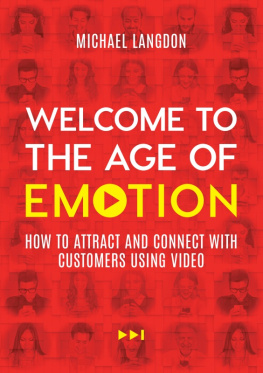
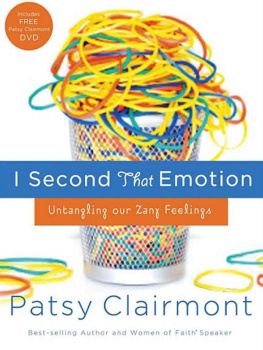
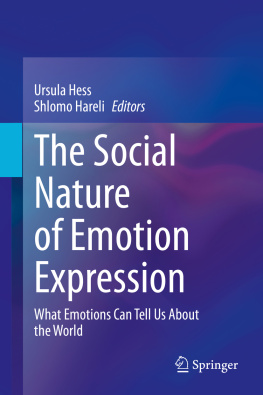
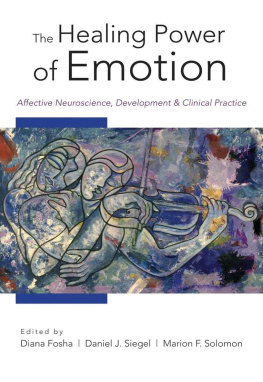
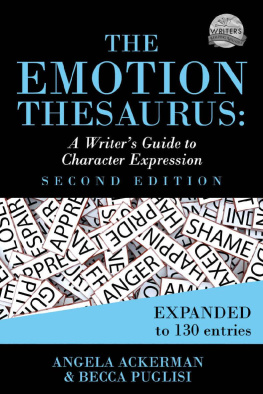
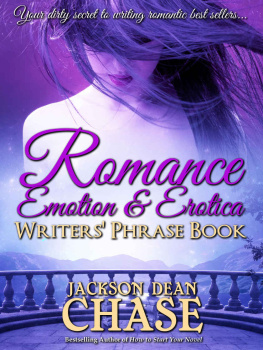
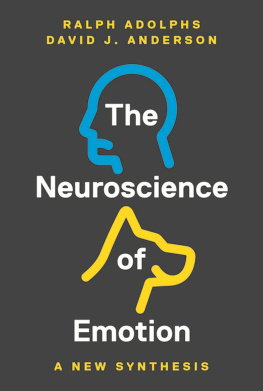
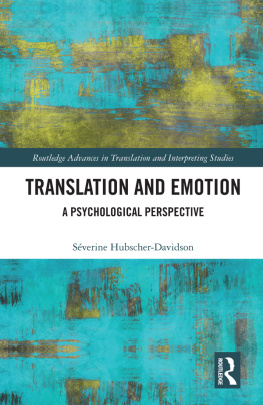
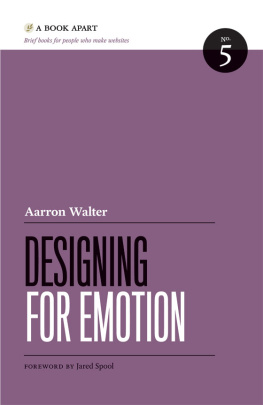
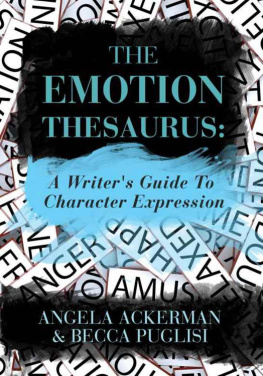
 TITLE PAGE EMOTION AMPLIFIERS A Companion to The Emotion Thesaurus: A Writers Guide to Character Expression Angela Ackerman and Becca Puglisi Copyright 2014 by Angela Ackerman and Becca Puglisi Smashwords Edition All rights reserved writershelpingwriters.net No part of this publication may be reproduced or distributed in print or electronic form without prior permission of the authors. Please respect the hard work of the authors and do not participate in or encourage the piracy of copyrighted materials. Book cover design by: McCorkle Creations Book formatting by: CyberWitch Press LLC ABOUT THE AUTHORS Angela Ackerman is a member of The Society of Childrens Book Writers and Illustrators (SCBWI) and writes on the darker side of Middle Grade and Young Adult.
TITLE PAGE EMOTION AMPLIFIERS A Companion to The Emotion Thesaurus: A Writers Guide to Character Expression Angela Ackerman and Becca Puglisi Copyright 2014 by Angela Ackerman and Becca Puglisi Smashwords Edition All rights reserved writershelpingwriters.net No part of this publication may be reproduced or distributed in print or electronic form without prior permission of the authors. Please respect the hard work of the authors and do not participate in or encourage the piracy of copyrighted materials. Book cover design by: McCorkle Creations Book formatting by: CyberWitch Press LLC ABOUT THE AUTHORS Angela Ackerman is a member of The Society of Childrens Book Writers and Illustrators (SCBWI) and writes on the darker side of Middle Grade and Young Adult. THE EMOTION THESAURUS is a tool for writers who want to convey character emotion effectively. It spotlights seventy-five emotions and the body language cues, thoughts, and visceral responses for each. Also addressed are common emotion-related writing problems and methods to overcome them. This thesaurus encourages writers to show, not tell, emotion and is a brainstorming resource for any fiction project. For more information, reviews, and purchasing options, please visit our website.
THE EMOTION THESAURUS is a tool for writers who want to convey character emotion effectively. It spotlights seventy-five emotions and the body language cues, thoughts, and visceral responses for each. Also addressed are common emotion-related writing problems and methods to overcome them. This thesaurus encourages writers to show, not tell, emotion and is a brainstorming resource for any fiction project. For more information, reviews, and purchasing options, please visit our website. THE NEGATIVE TRAIT THESAURUS is a flaw-centric exploration of your character's arc, motivation, emotional wounds, and basic needs. Its vast collection of flaws will help writers to explore the possible causes, attitudes, behaviors, thoughts, and related emotions behind their characters weaknesses so they can be written effectively and realistically. Downloadable tools for character building are included. For more information, reviews, and purchasing options, please visit our website.
THE NEGATIVE TRAIT THESAURUS is a flaw-centric exploration of your character's arc, motivation, emotional wounds, and basic needs. Its vast collection of flaws will help writers to explore the possible causes, attitudes, behaviors, thoughts, and related emotions behind their characters weaknesses so they can be written effectively and realistically. Downloadable tools for character building are included. For more information, reviews, and purchasing options, please visit our website.  THE POSITIVE TRAIT THESAURUS is brimming with ideas to help authors develop one-of-a-kind, dynamic characters that readers will love.
THE POSITIVE TRAIT THESAURUS is brimming with ideas to help authors develop one-of-a-kind, dynamic characters that readers will love.